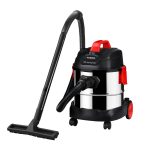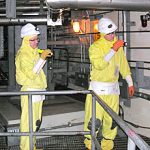Last Updated on May 23, 2024 by Ali Hamza
In the event of an injury sustained as a result of unsafe conditions on the premises, the owner or occupier (company) may be held legally responsible under California’s premises liability rules. Property and business owners have a general responsibility to do adequate inspections and upkeep on a consistent basis.
Injured customers or invited guests may file a premises liability claim seeking financial restitution for damages caused by the owner’s negligence. Find out from Stockton, California, premises liability lawyer what evidence is required to sue a landlord for negligent upkeep.
Responsibility for Negligent Maintenance in California
What constitutes adequate maintenance is not necessarily a cut-and-dried question. When it comes to routine maintenance, the owners of commercial and residential properties in Stockton, California are obligated to do as good a job as a reasonable person in a similar situation would. For a business or property owner to be held accountable for an accident caused by poor maintenance, the Judicial Council of California’s Civil Jury Instructions stipulate that the plaintiff must prove three elements.
The defendant either failed to repair the safety defect, failed to put alternative protections in place, or failed to warn customers or guests of the hazard adequately; and the defendant’s failure to repair the safety defect, fail to put alternative protections in place, or fail to warn customers or guests adequately.
Failure to Understand is Not a Valid Excuse
California property owners cannot “get off the hook” from liability for accidents caused by poor maintenance by claiming they “did not know” about the safety danger in question, as this is expressly forbidden by California law. Property owners and tenants alike are obligated to do regular, comprehensive inspections of the premises they occupy. Legal responsibility for failing to fix or maintain a hazardous condition exists if the business or property owner knew or should have known about the danger.
Owners of private residences and commercial establishments can counter with the claim that they provided sufficient warning to their customers. For instance, a portion of a department store in Stockon, California, that has been visibly roped off. Several signs indicated that “repairs were still in progress.” It’s possible the store owner won’t be held responsible for an accident that happens because a consumer ignored obvious warning signals. A different possibility is that the client will be somewhat responsible for their own harm. The precise facts of each case are always crucial in California premises liability cases.


























